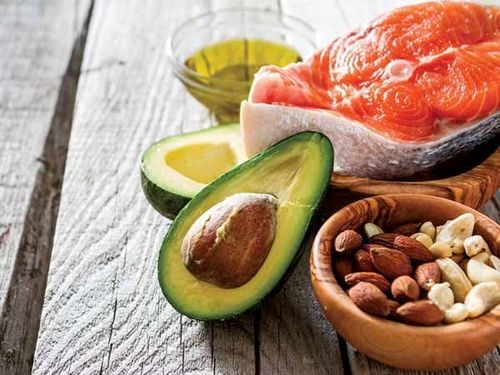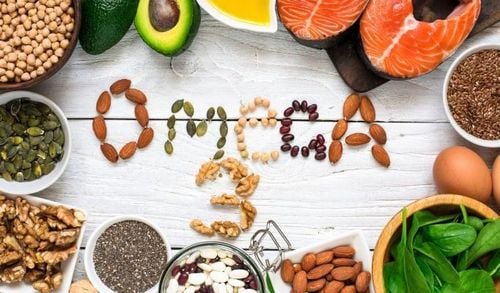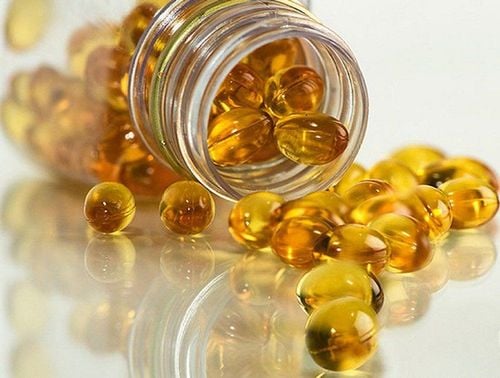This is an automatically translated article.
Many people think that sugar is the only source of raw materials that help cancer cells grow. However, there is actually another little-known factor that also plays a key role in the survival and growth of cancer cells, which is the amino acid glutamine.
1. Why should cancer patients not eat sugar?
Like all other cells, cancer cells also need nutrients to grow. Nutritionists often recommend that cancer patients should not eat sugar, because sugar is one of the sources of ingredients that can promote risk factors for developing cancer.
Foods that are high in sugar, low in fiber and nutrients, especially processed foods, often lead to a higher risk of cancer. In particular, researchers have also found that a diet rich in sugar can cause blood sugar levels to spike and develop a greater risk of certain cancers, including breast cancer. stomach cancer and colorectal cancer.
A new study shows that people who eat a diet high in sugar and refined carbs are nearly twice as likely to die from colon cancer than those with a healthier diet. .
Overall, high blood sugar and insulin levels in the body are considered the leading risk factors for cancer. There is a lot of evidence that insulin is a substance that stimulates the division of cells, aids the growth and spread of cancer cells and makes them more difficult to eliminate.
In addition, high levels of insulin and glucose in the blood can contribute to inflammation. In the long run, this will lead to the formation and growth of abnormal cells in the body and contribute to cancer. This is also the reason why people with diabetes often have a higher risk of certain cancers, such as colorectal cancer.
In order to prevent and control cancer, people at high risk or with cancer should not eat sugar and foods that can increase insulin levels, such as foods high in sugar or refined starches.
2. Besides sugar, what do cancer cells need to grow?
Although sugar is one of the important fuels, it is not the only element that cancer cells need to grow. Many studies show that an amino acid called glutamine is linked to cancers.
In 1955, an American doctor named Harry Eagle discovered that cancer cells require a certain amount of glutamine to survive. Without this chemical, cancer cells will stop growing and die, even if they have all other resources to sustain life.
In fact, the amino acid glutamic acid is one of 20 molecules that cells chain together into proteins, is rich in the element nitrogen and can be broken down to provide these elements for the assembly of other molecules. , such as DNA .
In the human body, cells depend on glutamine in different ways. It is not only involved in the production of DNA nucleotides and other molecules, but also acts as a "currency" that helps "pay" for the import of other amino acids into the cell.
The glutamine addiction of cancer cells has become a potential discovery, helping researchers develop promising cancer treatments. Perhaps by blocking the supply of this amino acid could starve cancer cells.

Glutamine là loại axit amin có liên quan đến các bệnh ung thư
3. What foods can increase the risk of cancer?
Nutrition for people with cancer is an important key to help prevent and slow down the progression of the disease. However, consuming the following foods can increase your risk of cancer and make it worse, including:
3.1.Processed meat
Nutritionists say that processed meat is considered a leading carcinogen. These meats are usually cured but retain their flavor by adding salt or smoked. Some types of processed meat that cancer patients shouldn't eat include ham, hot dogs, bacon, and deli meats.
In general, the diet for people with cancer should limit the consumption of processed meats, as it can increase the risk of cancers, especially colorectal cancer (increase by 20 – 50%).
A new study shows that consuming about 50 grams of processed meat per day (about 4 slices of bacon or a sausage), can increase the risk of colorectal cancer by up to 18 years. %.
Besides processed meat, a diet for people with cancer will be considered healthy when you limit red meat consumption. Studies show that consuming red meats can increase the risk of cancer progression.
3.2. Fried and grilled food
Cooking certain foods at high temperatures, such as frying, grilling, pan-frying, can create harmful substances such as heterocyclic compounds (HA) and persistent glycation products (AGEs) ). When these compounds accumulate in excess in the body, they contribute to inflammation and lead to the development of cancer and other diseases.
In addition, the diet for cancer people should also avoid foods from animals that contain a lot of bad fats and proteins, or burnt foods. Instead, choose foods that are cooked with gentler methods like steaming, boiling, or stewing.
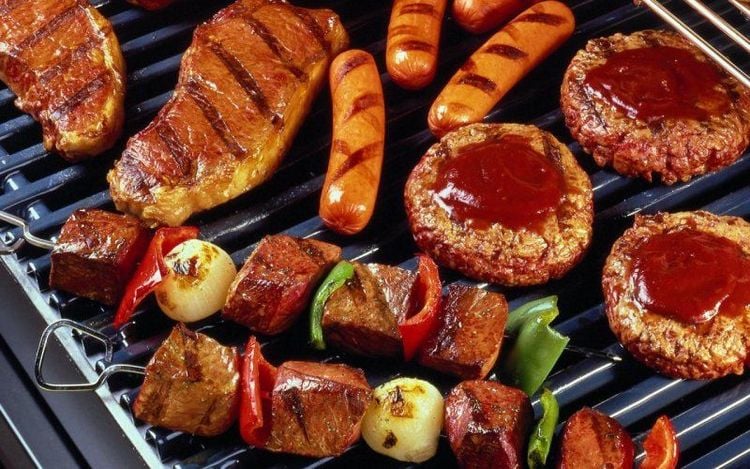
Đồ chiên, nướng tạo ra các chất có hại cho sức khỏe
3.3. Dairy products
Many people think that cancer should not drink milk. This view is due to the fact that high dairy consumption may increase the risk of prostate cancer.
Milk intake and dairy product consumption can increase levels of calcium, the hormone estrogen or insulin-like growth factor 1 (IGF-1) in men – all of which have been linked to development of prostate cancer.
4. Foods with anti-cancer properties
Indeed, there is no single superfood that can completely prevent and fight cancer. Instead, building a healthy and balanced cancer diet will bring the best health benefits.
Scientists estimate that following an optimal diet for cancer can reduce the risk of cancer by up to 70%, while helping patients regain their health after treatment. .
Some foods have the ability to reduce cancer risk by blocking the blood vessels that feed cancer, including:
4.1. Vegetable
Nutrition for cancer people cannot be without vegetables. Consuming more vegetables every day can significantly reduce the incidence of cancer.
Some cruciferous vegetables, such as cauliflower, broccoli and cabbage, contain sulforaphane, which has been shown to reduce tumor size by up to 50%. In addition, some other vegetables such as carrots and tomatoes also help significantly reduce the risk of stomach cancer, lung cancer and prostate cancer.
4.2. Fruit
Similar to vegetables, fruits also contain a lot of antioxidants and phytochemicals, which can help prevent cancer effectively. A new study shows that the diet for people with cancer should have at least 3 servings of citrus fruits per week. Regular consumption of these fruits also reduces the risk of stomach cancer by 28%.
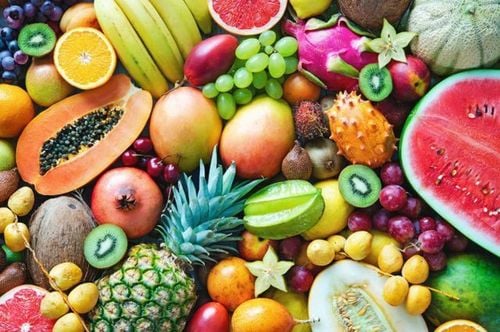
Trái cây chứa nhiều chất chống oxy hóa
4.3. Spice
Several animal and test-tube studies have shown that spices, such as cinnamon, contain cancer-fighting properties and help stop the rapid spread of cancer cells.
In addition, turmeric is also considered another important spice in the diet of cancer people. This is because turmeric contains curcumin, which has the ability to prevent and fight the growth of cancer. Every day, you can consume about 4 grams of curcumin, which will help reduce colon cancer lesions by 40%.
4.4. Fish
A lot of evidence shows that eating fish containing healthy fats helps reduce inflammation and effectively prevent cancer. According to a new study, a diet rich in fish can reduce the risk of colorectal cancer by 12%.
Please dial HOTLINE for more information or register for an appointment HERE. Download MyVinmec app to make appointments faster and to manage your bookings easily.
Reference source: healthline.com




